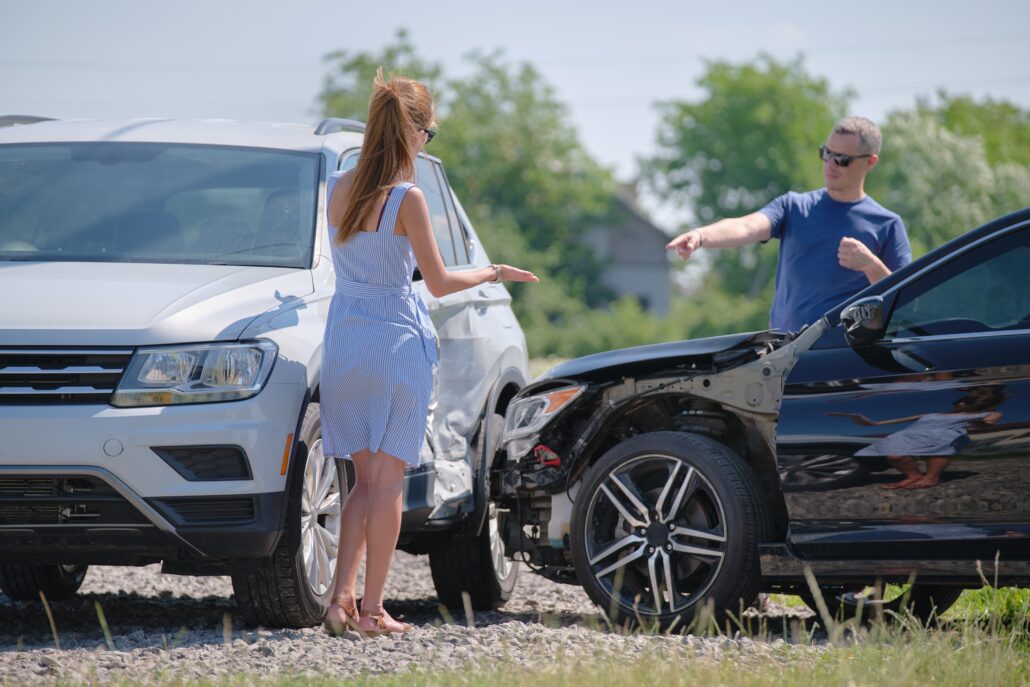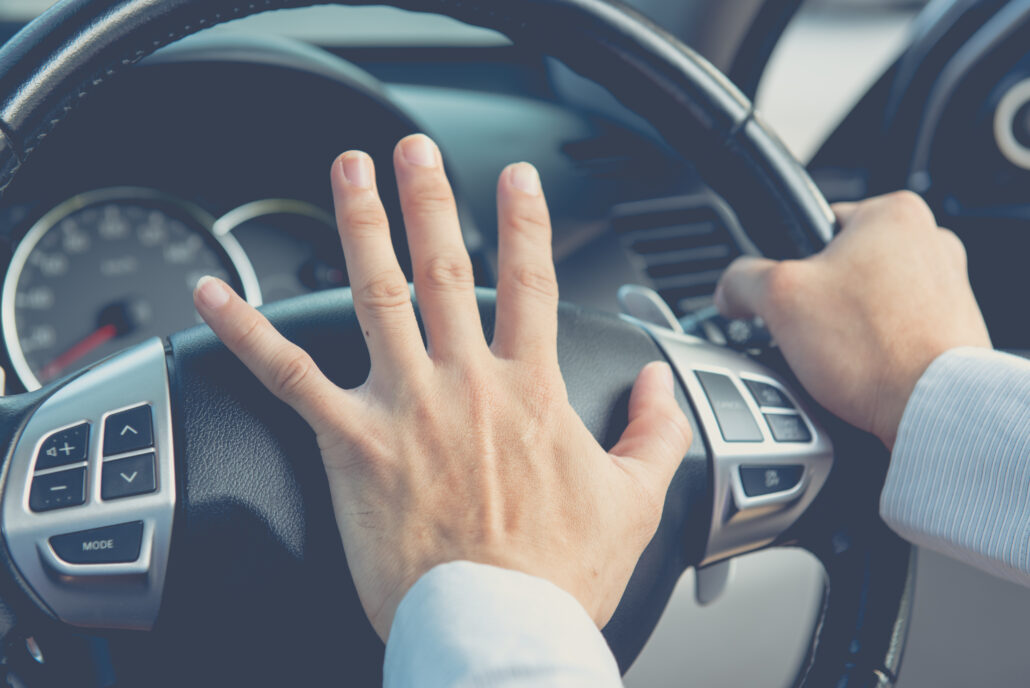Road rage incidents are, unfortunately, common experiences for many drivers these days. This behavior, fueled by stress, frustration, or anger, can frighten and endanger others.
While everyone may have experienced losing their temper at some point, road-raging drivers take it a step further by expressing their emotions through aggressive and reckless actions. These behaviors include speeding, tailgating, racing, honking, flashing lights, and even attempting to force other vehicles off the road.

Road rage goes beyond mere frustration; it constitutes deliberate negligence and is, in fact, illegal. If you find yourself injured due to the actions of a road-raging driver, you can seek compensation for the harm you suffered. An experienced car accident attorney in the Bronx can help in those cases.
A skilled attorney who handles road rage accidents can fight for the compensation you deserve. They possess the knowledge and skills to navigate the legal complexities surrounding road rage incidents. Additionally, they can gather evidence, interview witnesses, and build a robust case to establish the negligence of the road-raging driver.
Common Road Rage Driving Behaviors
Various road rage behaviors can manifest differently from one driver to another, but generally, the following actions fall within the scope of road rage:
- Tailgating: Driving extremely closely behind another vehicle.
- Yelling: Shouting or expressing frustration vocally.
- Honking in frustration: Using the car horn to convey anger or irritation.
- Making angry gestures: Displaying aggressive or hostile hand signals.
- Trying to block another vehicle from changing lanes: Intentionally hindering lane changes of other drivers.
- Cutting off another vehicle on purpose: Deliberately entering a lane in front of another vehicle.
- Exiting the vehicle to confront another driver: Getting out of the car to engage with another driver.
- Bumping or hitting another vehicle intentionally: Colliding with another vehicle deliberately.
- Passing where prohibited: Overtaking other vehicles where it is not allowed.
- Speeding up to pass another vehicle, then deliberately slowing down in front of them: Aggressively controlling the speed in front of another vehicle.
- Erratic driving, operating the vehicle recklessly or carelessly: Displaying unpredictable and unsafe driving behaviors.
- Brake checking: Suddenly and intentionally braking to cause another driver to collide.
- Weaving in and out of traffic: Maneuvering the vehicle rapidly between lanes.
- Confrontational body language: Using physical postures or expressions to convey aggression.
- Failure to yield the right of way: Not allowing others to proceed as per traffic rules.
- Flashing headlights or high beams: Using headlights to signal anger or annoyance.
- Disregarding traffic signs and signals: Ignoring posted signs or traffic lights.
- Running red lights or stop signs: Proceeding through intersections without stopping when required.
Recognizing these behaviors is crucial for promoting road safety and avoiding potentially dangerous situations. If you encounter road rage, it's advisable to prioritize your safety, remain calm, and report the incident to the appropriate authorities if necessary. If you are injured during a road rage incident contact a car accident attorney right away to protect your rights.
Factors Contributing to Road Rage Behaviors
Several factors can contribute to road rage behaviors, as driving does not eliminate human emotions and responses.

While most people control their anger on the road, various factors can escalate it into road rage, as reported by the National Highway Traffic Safety Administration (NHTSA):
- Being in a hurry: Running late or not allocating enough time for potential traffic delays can create stress, quickly escalating into road rage for some drivers.
- Traffic congestion: Sitting in a traffic jam may be a significant waste of time, leading to rising aggravation, especially for drivers in a hurry.
- Self-centeredness/lack of empathy: Some road-raging drivers struggle to empathize with others, believing that traffic laws don't apply to them or failing to recognize the impact of their actions on others.
- Cloak of anonymity: Drivers may feel isolated and separated from others on the road, considering most are strangers. This perceived anonymity inside their vehicle can make some drivers feel unaccountable for their actions.
- Competitiveness: Driving can trigger a sense of competition in some drivers, leading them to aggressively maneuver through traffic to be the first at their destination. This competitive road rage often results in reckless driving.
- Passive aggression: Some drivers prefer covertly maintaining control of the road, avoiding direct confrontation. They may speed up to prevent another driver from merging into their lane, rarely acknowledging the presence of fellow motorists.
Regardless of the contributing factors, drivers engaging in road rage behaviors are accountable for any resulting damages. There is no justification for such behavior, and victims of road rage can seek justice with the assistance of a skilled car accident lawyer.
Types of Road Rage Accidents
Road rage incidents can lead to various types of car accidents, often involving aggressive and dangerous driving behaviors.
Some common car accidents resulting from road rage include:
- Rear-End Collisions: Aggressive tailgating is a frequent road rage behavior, leading to rear-end collisions if the driver in front suddenly slows down or stops.
- Sideswipe Accidents: Road-raging drivers may attempt to pass or change lanes aggressively, leading to sideswipe accidents where the sides of two vehicles make contact.
- Head-On Collisions: Intentional aggressive driving, such as attempting to force another driver off the road, can result in head-on collisions, which are often severe and cause significant injuries.
- Intersection Crashes: Aggressive driving through intersections, running red lights, or ignoring traffic signals can lead to collisions at intersections.
- Forced Off-Road Accidents: Some road-raging drivers may attempt to force another vehicle off the road, causing the targeted driver to collide with barriers or natural obstacles.
- Multiple Vehicle Pileups: Aggressive driving can trigger chain reactions, leading to multi-vehicle pileups, especially in high-traffic areas.
It's important to note that road rage incidents can escalate quickly, and the resulting accidents may vary in severity. Such incidents pose significant risks to the safety of all road users and often lead to unnecessary injuries and property damage.
Road Rage Accident Damages
In road rage accidents, like any personal injury claims, two essential factors come into play: liability and damages. Liability pertains to legal responsibility, and when a person deliberately engages in road rage, they are choosing to act negligently or even recklessly. They are legally accountable for the resulting damages.
Following an injury accident, compensation is contingent on the victim's damages. The purpose of compensating for damages is to address and alleviate the harm caused by the liable party.
While no amount of money can fully erase the impact of someone's injuries, providing compensation helps cover injury-related costs and other losses incurred.
The amount of compensation a victim of a road rage car accident should receive is determined by the extent of their damages and injuries. For example, suppose someone experiences minor cuts or scrapes in a car accident without requiring medical treatment. In that case, their claim may not be worth pursuing, as no significant damages exist.
On the other hand, if a road rage accident results in severe injuries like broken bones, whiplash, burns, head injuries, or catastrophic conditions such as spinal cord injuries (SCI) or traumatic brain injuries (TBI), the victim deserves compensation for the extensive damages incurred.
Compensatory Damages

Compensatory damages aim to reimburse individuals for their losses and inconveniences, falling into two categories: general and special.
Also known as economic damages, special damages possess a predetermined value, reducing the likelihood of disputes over their worth by insurance companies. Special damages cover:
Lost Income: Car accident injuries can prevent individuals from immediately returning to work or resuming their usual employment. Those affected can seek damages for lost wages, income, and other earnings. Attorneys carefully calculate lost income and wages from the accident date to the current date or the return-to-work date.
If physical limitations persist, calculations extend for the duration of their inability to work. This assessment should also consider any missed bonuses, tips, or commissions due to the incapacity to work.
Medical Care Expenses: Road rage car accidents burden victims with significant medical costs. When evaluating medical expenses, it's crucial to consider all healthcare received post-accident, starting immediately after the injury up to the present. If ongoing medical care is anticipated after case resolution or trial, these future expenses should also be a factor.
Medical expenses may include:
- Ambulance services
- Emergency department visits
- Surgeries or medical procedures
- Hospital admissions
- Physical or occupational therapy
- Diagnostic tests and lab work
- Mental healthcare
- Prescriptions and over-the-counter medications
- Medical equipment like walkers, slings, crutches, wheelchairs, or respirators
General or non-economic damages stem from the intentional negligence of the road-raging driver. Despite lacking tangible proof like receipts or medical bills, the connection between the road-raging driver's actions and the victim's general damages can be evident and substantial.
Depending on the particulars of your road rage accident, general damages may include:
- Pain and Suffering: Physical pain and discomfort during the accident and ensuing suffering from injuries and treatments.
- Physical Impairments or Disabilities: Inability to self-care post-traumatic brain injury (TBI) or loss of independent mobility after a spinal cord injury (SCI).
- Disfigurement or Scarring: Humiliation or embarrassment due to severe scarring, amputation, or disfigurement.
- Mental Anguish: Fear, distress, anxiety, depression, trauma, or grief arising from the road rage accident.
- Loss of Enjoyment of Life: Inability to partake in everyday activities, recreational pursuits, hobbies, holidays, exercise, traveling, and family traditions due to injuries.
- Loss of Consortium: Loss of marital, parental, or other unique relationship benefits, also known as loss of affection or companionship.
Assigning value to general damages is challenging as they lack a fixed rate or calculable measure. Typically, general damages range from 1.5 to five times the victim's special damages. The determination and agreement on their value may vary due to the subjective nature of these damages.
Punitive Damages
If the person responsible for your injuries acted intentionally or demonstrated extreme disregard for your safety and the well-being of others, you can request the court to award punitive damages in your case, also called exemplary damages. This holds true for many road rage cases arising from car accidents. However, securing punitive damages typically necessitates legal representation from an experienced personal injury lawyer.
It's essential to understand that personal injury settlements don't include punitive damages; only the court can grant them. Courts reserve punitive damages for cases involving the at-fault party's malicious, willful, oppressive, fraudulent, or reckless conduct. Punitive damages discourage both the responsible party and others from engaging in similar behavior.
Certain states have enacted split-recovery statutes. Under these statutes, a portion of the punitive damages awarded to the victim goes to the state. However, the victim retains all of their compensatory damages.
What if the Road-Raging Driver Faces Criminal Charges?
Even if the driver involved in the road rage incident faces criminal charges, you still may pursue a civil lawsuit to seek compensation for your damages.

Criminal and civil cases operate independently of each other. Therefore, a conviction of the road-raging driver on criminal charges doesn't automatically guarantee you full and fair compensation for your injuries.
Similarly, reaching a settlement through your attorney or winning a civil court award does not imply guilt for the criminal charge against the road-raging driver.
In addition to seeking compensation, holding the road-raging driver accountable for their actions is a vital aspect of the legal process. By pursuing a legal claim, you contribute to the promotion of road safety and discourage such dangerous behaviors on the road.
Were You a Victim of Road Rage? Contact an Experienced Attorney Today for Help
If you've been a victim of a road rage accident, consulting an attorney specializing in this area of law can provide you with the guidance and support needed to navigate the legal system and pursue a fair resolution.
You should not tolerate road rage incidents, and legal representation can hold the responsible party liable for their actions. The sooner you reach out to an attorney, the sooner you could receive financial compensation for your damages.



